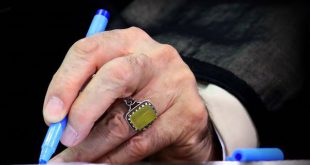Making their voices heard, Muslims resorted to online activism in 2018, spreading viral hashtags to speak for themselves.
The hashtags came either to demand rights, show support for Muslims, or to express themselves.
Here follows a list of the most important hashtags that went viral in 2018, as covered by Muslim News section.
#LoveAMuslimDay
A day after the spread of hateful “Punish a Muslim Day” letters, a new hashtag #LoveAMuslimDay was trending in the UK with an objective of countering hate with love.
#MeTwo
Thousands of people in Germany have been sharing stories of everyday discrimination under the hashtag #MeTwo, following Muslim football star Mesut Özil’s resignation from the country’s national team.
#LetUsPray
Muslim students in Bernard College and Columbia University have been campaigning for proper prayer spaces, launching a new video campaign using the hashtag @LetUsPray.
#MuslimWomenDay
On the second Muslim Women Day, #Muslimwomensday hashtag quickly went viral as women shared their experiences and shout outs to Muslim women who inspired them.
#BeingBlackandMuslim
The Muslim Anti-Racism Collaborative hosted its fifth annual #BeingBlackandMuslim Twitter Townhall on February 13. The focus of this year’s #BeingBlackandMuslim town hall explored “the Black Muslim Atlantic’s past, present, and future.
#BlackMuslimReads
During this year’s Black History Month, African American Muslims across the country shared their best reads as the hashtag #BlackMuslimReads went viral on Twitter.
#JusticeforZainab
The hashtag #JusticeforZainab was trending in January 2018 to demand justice for a seven-year-old girl who was raped and killed in Kasur, north-eastern Pakistan, five days after she went missing from home.
 Ijtihad Network Being Wise and Faithful Muslim in the Contemporary World
Ijtihad Network Being Wise and Faithful Muslim in the Contemporary World
